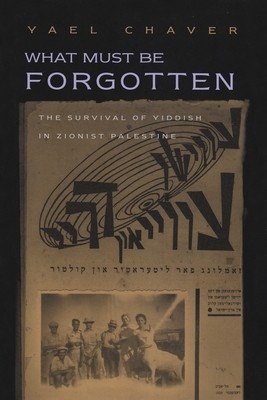
- We will send in 10–14 business days.
- Author: Yael Chaver
- Publisher: Syracuse University Press
- ISBN-10: 0815630506
- ISBN-13: 9780815630500
- Format: 14.7 x 21.5 x 2.2 cm, hardcover
- Language: English, Jidiš
- SAVE -10% with code: EXTRA
Reviews
Description
As Zionism took root in Palestine, European Yiddish was employed within a dominant Hebrew context. A complex relationship between cultural politics and Jewish writing ensued that paved the way for modern Israeli culture. This enlightening volume reveals a previously unrecognized, alternative literature that flourished vigorously without legitimacy. Significant examples discussed include ethnically ambiguous fiction of Zalmen Brokhes, minority-oriented works of Avrom Rivess, and culturally pluralistic poetry by Rikuda Potash. The remote locales of these writers, coupled with the exuberant expressiveness of Yiddish, led to unique perceptions of Zionist endeavors in the Yishuv.
Using rare archival material and personal interviews, What Must Be Forgotten unearths dimensions largely neglected in mainstream books on Yiddish and/or Hebrew studies.EXTRA 10 % discount with code: EXTRA
The promotion ends in 16d.11:56:49
The discount code is valid when purchasing from 10 €. Discounts do not stack.
- Author: Yael Chaver
- Publisher: Syracuse University Press
- ISBN-10: 0815630506
- ISBN-13: 9780815630500
- Format: 14.7 x 21.5 x 2.2 cm, hardcover
- Language: English, Jidiš English, Jidiš
As Zionism took root in Palestine, European Yiddish was employed within a dominant Hebrew context. A complex relationship between cultural politics and Jewish writing ensued that paved the way for modern Israeli culture. This enlightening volume reveals a previously unrecognized, alternative literature that flourished vigorously without legitimacy. Significant examples discussed include ethnically ambiguous fiction of Zalmen Brokhes, minority-oriented works of Avrom Rivess, and culturally pluralistic poetry by Rikuda Potash. The remote locales of these writers, coupled with the exuberant expressiveness of Yiddish, led to unique perceptions of Zionist endeavors in the Yishuv.
Using rare archival material and personal interviews, What Must Be Forgotten unearths dimensions largely neglected in mainstream books on Yiddish and/or Hebrew studies.

Reviews